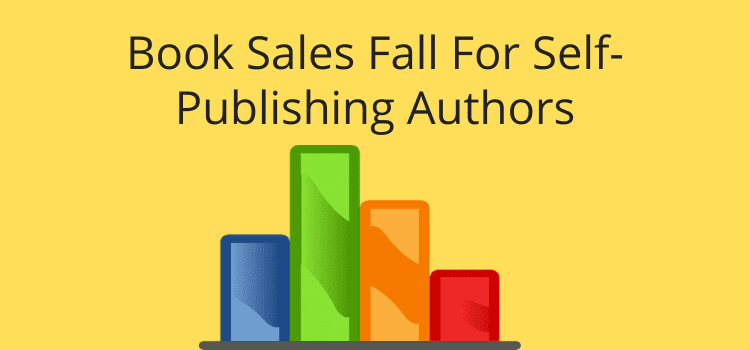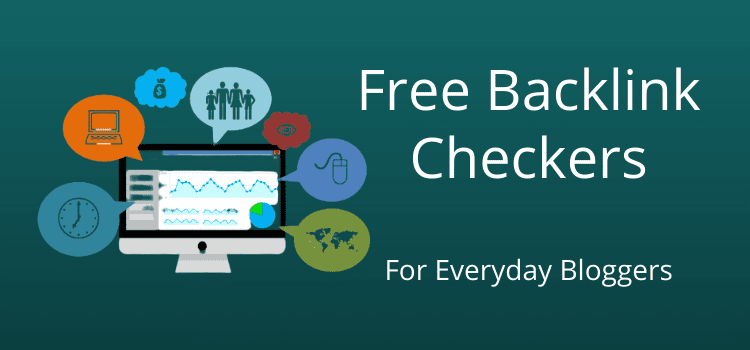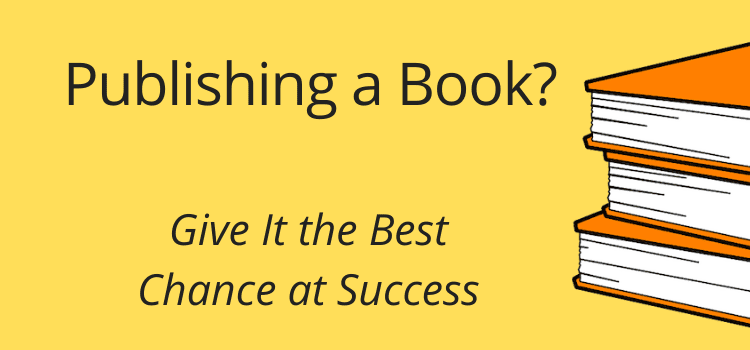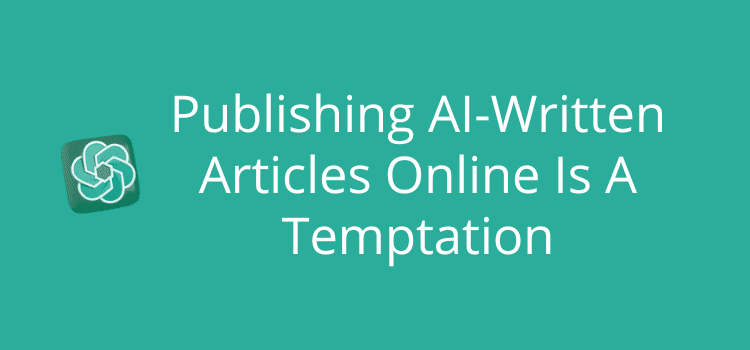
Book sales fall for self-published ebooks, in particular. But Why?
After years of steady growth, ebook sales for indie authors have started to hit a problem.
The most recent data from Author Earnings in their latest quarterly report gives ample proof of the drop off in self-publishing sales and earnings.
While the data is clear, the reason or reasons why the number of books sold by indie authors has fallen so quickly is definitely not so clear.
What did book sales fall?
The long list of comments attached to the Author Earnings report gives rise to many possible scenarios.
But as the report and some commenters mention, the most likely causes are a change in algorithms by Amazon.
It could be a glitch in the Kindle Unlimited pay-per-page read program. Or a sudden change of marketing emphasis by Amazon.
There is also the possibility that Bookbub has added to the problem by accepting fewer self-published books to promote.
As I say, added to the problem, as I do not believe Bookbub is the root cause.
Markets will always fluctuate
Whatever the reasons, the bad news only relates to the last quarter, or perhaps a little longer.
But you have to expect ups and downs in any market.
Therefore, it is a good lesson to heed.
If you are publishing on Amazon, the market will always move. The reasons why it moves are completely out of the control of the authors.
Self-publishing is still very much in its infancy, and every participant is still learning, including Amazon.
Sure, it’s a given that Amazon was the real pioneer of self-publishing. It has helped so many authors by allowing them to self-publish.
They have their ebooks and books available for sale on Amazon, which is, of course, the largest ebook retailer in the world.
However, Amazon is not a charity. It is a business. And it will make business decisions that will not always be positive for its suppliers. Which, in this case, are authors with their books on Amazon.
Publish wide?
Business 101 says that you should never have your business controlled by one major supplier or one major customer.
In the case of many self-published authors, Amazon KDP or KDP Select is their only retailer and only publisher.
When Amazon changes its course or makes a business decision, business 101 says that your business is controlled by these decisions.
The need to diversify income sources and suppliers is always a better business model.
But in today’s ebook market, diversification is limited to only two aggregators, Smashwords and Draft2Digital, and a handful of retailers such as Apple, B&N, and Kobo.
Using these avenues is called publishing wide. But for a healthy competitive ebook market, it is not nearly wide enough to help Indie authors sell books.
If you write books and self-publish, you will know that Apple and Barnes & Noble are way behind Amazon in attracting ebook buyers.
Unfortunately, whatever the specific reasons are for the recent decline in indie author sales and income, the underlying cause is a lack of genuine competition.
Take the long-term view
The factors at play are out of the control of indie authors. So the only logical answer is to be patient.
You can try to ride out this current downturn and hope that it’s only a short-term glitch.
After many years of steady growth, there is no need to believe that the sky is falling on self-publishing. There are always plenty of people to buy books.
But there is good reason to believe that at present, someone, somewhere, is playing with the marketing levers.
Update: Author Earnings has recently closed down its site. So it is now even more difficult to find accurate data about Amazon ebook sales.
Update: From the feedback I have received from many authors, the problem of falling ebook sales on Amazon seems to have started in April 2019.
Related Reading: My Books Aren’t Selling! – 10 Actions You Can Take




Figured out why the margin has been cut so drastically. This website states that now the 70% royalties that you get is also now including a download fee per mb. Delivery Costs are equal to the number of megabytes we determine your Digital Book file contains, multiplied by the Delivery Cost rate listed below. You need to hire an attorney to understand this now.
Amazon.com: US $0.15/MB
Amazon.ca: CAD $0.15/MB
Amazon.com.br: R$0.30/MB
Amazon.co.uk: UK £0.10/MB
Amazon.de: €0,12/MB
Amazon.fr: €0,12/MB
Amazon.es: €0,12/MB
Amazon.in: INR ₹7/MB
Amazon.it: €0,12/MB
Amazon.nl: €0,12/MB
Amazon.co.jp: ¥1/MB
Amazon.com.mx: MXN $1/MB
Amazon.com.au: AUD $0.15/MB
We will round file sizes up to the nearest kilobyte. The minimum Delivery Cost for a Digital Book will be US$0.01 for sales in US Dollars, INR₹1 for sales in Indian Rupees, CAD$0.01 for sales in CAD Dollars, £0.01 for sales in GB Pounds, ¥1 in JPY, R$0.01 for sales in Brazilian Reals, MXN$1 for sales in Mexican Pesos, AUD$0.01 for sales in Australian Dollars, and €0.01 for sales in Euros, regardless of file size. For sales in JPY, we will not deduct any Delivery Cost for books 10 MB or greater.
Maybe Amazon is pushing AMS, and that unknown authors who don’t advertise are being shunted to the back of the pack on KU or KDP, regardless of key words, book cover, content, etc. Earlier this year, the KDP Select Global Fund was around $19 million, but now it’s almost $26 million. Maybe they are making up the difference with ad revenue.
In the summer of 2017, I released a Southwest suspense ebook and was happy with sales through 2018, although this year they tanked. A few months ago, I released a sequel, but have had no sales at all, despite tinkering with keywords, description, cover, etc. It could be that competition has become so much stiffer, but I wonder . . .
Ah, so it’s not just me then! My sales have fallen by two thirds during the past six weeks. In particular, my free books are attracting less than 10% of readers than before. I have an eleven-book series, one permafree and the remainder on Select. Until recently my permafree book attracted 300-400 downloads per day which have been steady for more than 3 years – then suddenly, in early September, the daily downloads dropped to an average of 30-40.
The reduced downloads of my other free books – those I have made free for a few days through the Select program – has been even more dramatic. In the past, I would expect over 1,000 downloads on the first day and 3-400 on the second (I usually post a free book for only 2 days). The 2 books I have offered free since the beginning of September garnered less than 50 downloads during the 2-day promotion period.
I would add, however, that my KU page reads do not appear to have been adversely affected.
I have not bothered to write to Amazon to attempt to solve this mystery because I know the response will be unhelpful. I wonder whether the sheer volume of books available on Amazon now is a principal factor. One of the advantages for indie authors on Amazon is the fact that your books never go out of ‘print’; however, that may now be becoming a disadvantage as potential readers find it increasingly difficult to find what they are looking for.
Meanwhile, I feel sympathy for new writers who fall for the book-selling ‘gurus’ who offer expensive courses on how to sell books on Amazon yet offer the same tired old cliches that no longer work.
Oh well, back to the typewriter to work on my breakthrough blockbuster…
Sorry to hear about your loss of sales, John. It is interesting that you note your KU page reads are still steady though. It is normal for sales to fall away over time for titles, but as you point out, your sales fell away quite suddenly. Unfortunately, there is no way of knowing what Amazon is doing that might cause this. But something is surely adversely affecting ebook sales for many authors.
I’m an Indie publisher in The sci-fi romance category and all my books are wide because I don’t trust Amazon and don’t want all my eggs in one basket. Since April my Amazon revenue has dropped and is now half of what it was last year. I have no idea what is happening but I assumed it was Amazon changing the algorithm to favor KU authors. I will never join KU—it allows Amazon to abuse authors and devalue their hard work. I’m very glad for the money I make at other publishers which is helping me stay afloat. I don’t know if this trend will ever stop or reverse—I doubt it. But I’m holding on the best I can and hoping for the best.
You are not the first author to mention that April as the turning point, Evangeline. It happened to me as well. I have been in touch with Amazon KDP, but transparency is not one of its assets. The responses have all been that everything is operating normally. But I am with you in thinking that it is related to not having my ebooks in KDP Select and KU.
I have heard from some KU authors that their sales dropped too, though. But most of the ones I talked to had fewer than 15 books on Amazon. I have almost 100. Another author friend who is in my same bracket and genre told me that ONLY her KU books are doing well. It’s very suspicious!
It’s only anecdotal, but it seems to me that Amazon has changed its algorithm to favour ebooks in KU. I’m not sure why it would be an advantage to Amazon, but it looks like it is the case. There is also another issue of AMS advertising. When I contacted KDP, every reply I received said that I should use AMS. I found that a little suspicious.
I do use AMS advertising though only for new books–it doesn’t do a thing to boost old books I have found. I have no idea what is going on but I wonder if Amazon has just decided to keep some of the money earned by authors and under-report earnings. Who could stop them if they decided to do that? No one.
It’s true. We have no way of checking. The same goes for all big Internet companies. All we can do is trust that they are being honest with us. But as we discovered with Facebook, it is not necessarily always the case.
Thank you for letting me know that I’m not alone.
After enjoying a nice long tail of roughly one ebook a day (from two novels) for the last couple of years (together with the same volume of KENP book reads), the ebook sales ceased completely as of 29 April 2019. It’s the longest run of zero sales I’ve ever experienced. KENP reads continue as before … just the ebook sales’ healthy heartbeat has flatlined … and buying patterns rarely work that way. (For context, the novels took years to write, due to extensive research, have 4+* ratings and a modest fan base.)
Amazon just say ‘our tech is working fine’. That’s that. Even though several authors have reported similar issues in their migration from CreateSpace. My paperbook sales ceased after my forced migration to Amazon, too.
But ebooks are not items we can count out of a warehouse. We have no way of verifying how many are actually sold. Amazon could sell a hundred and report one … who would actually know? What independent checks happen to that granularity?
A monopoly is never good for an industry, for all kinds of reasons, and with 85% of book sales, Amazon has a de facto monopoly, which authors and even governments dare not challenge.
In some ways, we’ve passively watched the rise of 3 global super-powers, who can defy countries and governments (eg decide how much tax they want to pay) and who are diversifying into areas such as space and AI. If a new nation acted that way, wouldn’t there be sanctions?
I’m sorry to hear, Karen.
It’s so difficult to get reliable information from Amazon in situations like yours. Another author has told me that he has had a similar experience with sales of his paperbacks. When he changed from Createspace to KDP, his regular sales earnings stopped in an instant. He believes he has sold over 1,000 copies since the change.
So I don’t know what to advise, other than keep pestering Amazon.
Thank you, Derek.
If I thought it was a genuine dry-off or a change in algorithms, I could bear it. It’s the suspicion that the sales have continued as before, with Amazon taking all the revenue which burns. But even when authors provide evidence of sales, they are ignored.
Maybe it’s time that authors unionised!
PS Thank you for this great site.
It’s a problem with all Internet monopolies, Karen. They answer to no one. It’s the same with Google. If you lose a ranking keyword, site traffic nosedives. But there is no way of knowing why. While Facebook and Twitter can close accounts with no recourse. We all complain about governments, but at least we get a say every four or five years. But the Internet is now close to a dictatorship. All you can do is make the best of it. Somehow.
I totally agree. Our government acts to prevent national monopolies, but seems powerless to act against a global one.
Now, worryingly, Facebook (one of the other super-powers) wants to create its own currency. It will be a nation that transcends governments and with a currency that does the same. I find it disturbing.
Well, Karen, I have to update my opinion. I have checked and checked, and it’s the same for me since 29th April 2019. Zip, zero, nil sales.
I have been selling books and ebooks on Amazon for years and years and I have never seen such an extended period on no sales. Something is very fishy here.
I’ll see what I can find out.
Hi Derek, I’m really sorry to hear that you’ve been hit too!
My unprecendented zero sales run continues.
I can’t fathom what has happened, other than my books now being almost impossible to find by chance :/
I’d appreciate any insight you can uncover.
Hi Karen,
I can only assume that the cause is a change in the search algorithm at Amazon. It might be excluding titles that haven’t been updated for some time, or perhaps it is excluding certain keywords. As with all the big tech companies, they say a change of algorithm is to enhance user experience. But in reality, it is usually to enhance profit. It’s the world we live in today. All you can do is try to adapt.
I’m also happy to know that I’m not alone in this situation. I have 11 books (novels) on sales on Amazon. And, strangely enough, as of 29 April 2019 for me too, the sales just dropped. I had increased the price of my books by 1 € on May 1st and I thought it was the problem, so I put the price back down at 4,99€, but nothing changed. I still get between 2 and 6 sales per day, but I used to get between 10 and 30.
My sales are on Amazon.fr (France) and Amazon.ca (French Canada) and the books are in French, and it seems like the same problem. I hope this is just temporary.
I hope it is temporary too, Annie. But it has been six weeks now, so I am not hopeful.
The problem is that is so hard to know what is going on. As far as I can see, all my book sales pages are unchanged. That is, no reviews have been deleted or changes made to my description or buy buttons. Yes, we endured a month or so with missing buy buttons on Amazon late last year, so problems do occur.
But I am more inclined to think that this current issue is due to a change of search algorithm that might now favour Kindle Unlimited ebooks or newer books. I can’t say for sure though.
When I get some time, I will try change and update my categories and keywords on a few titles to see if it makes any difference.
But it is a mystery.
Both my books were on KU, so I don’t think that can be the reason.
I did hear something about key words being wiped during the CreateSpace migration, but I can’t see any change in mine.
I’ve now cancelled KDP Select auto-renew on both books, so that I can offer them (and the next one) on Kobo/B&N, as that’s virgin territory for me. Once sales slump there, I’ll withdraw them from those channels and put them on KU. At very least, I will learn something in the experiment.
Not sure if it’s coincidental, but KDP have sent me a ‘How are we doing?’ survey. Just loading both barrels to respond to that one.
Here’s a comment from an avid reader friend of mine when I told her about the weirdness of Amazon lately:
‘I’ve noticed it’s been very hard to find books on Amazon lately too, so they have definitely changed something. Most of the links from the Goodreads pages to Amazon I’ve tried to use have no longer worked and I’ve been forced to fully type in a number of titles, and some of them didn’t come up even then, instead I had to use the full author name and then only one or two titles would appear unless I clicked on to the author page and found the rest of their work that way, but it was only through determination and knowing the work existed at all from Goodreads info that I didn’t give up and decide the author must only be available on U.S. Amazon.
I wonder if the system has finally simply collapsed under the weight of all the kindle books they are now selling?’
This jives with my boyfriend’s experiment of trying to find my book with a simple search, but having to type in the exact title to find my work.
Goodreads was a key source of readers for me, so I’m off to check the links are working!
That’s interesting, Karen. I’ll take a look at Goodreads too.
You missed the main reason. Fraud. Amazon went on a lawsuit driven purge of all the crap on its store. So sadly, most of the ‘stats’ were fraudulent.
What you are actually seeing, is not a DROP in sales. But closer to the actual number, when you remove the thousands and thousands of books that are made in minutes to generate false profits.
Good point, Andy.
Just in connection to perhaps exactly these stats, Mike Shatzkin the New-York publishing consultant has launched a blog-post/Article.
But the interpretation/explanation of the data does not consider (as far as I’ve read so far here) quite the following factors:
# Electronic Piracy
# Fiction vs Non-fiction
# Topics or Categories of the Book
The modern Book Industry is not as simple as “mainly” the consideration of Traditional vs Self-publishing. Or “whether or not to self-publish” is the only key decision.
In fact there are likely even more factors above — overlooked by both the Analysts & even myself (at this moment).
Who knows that self-e-publishers at Amazon are even more vulnerable to piracy than their traditional counterparts? Kindle DRM can be (as far as the YouTube videos & other online resources say) quickly & easily “cracked” within only 1/2 min & by only 3 mouse clicks. Publisher-backed Authors could perhaps fight back using the Legal perseverance of the traditional houses. For example: Penguin & McMillan continuously employ a very specialized Legal network. To track & counter the Pirates online.
Google & Amazon are allegedly of no help here according to many claims. So what happens to the KIndle self-publishers once the DRM is cracked?
And in modern era, ODP (on-demand-piracy) concept is there. So even if there is a cream among the self-publishing books, that can be pirated. Pirates don’t underestimate self-publishing. They are in search of the creams amid the so-called “slush pile” there.
Today, all books (be it cream self-publishing, or be it big-name-endorsed publishing) could be POTENTIALLY pirated based on even a single person’s demand in a Torrent website or a Cyberlocker or the Dark clouds in the Internet.
And Amazon’s DRM is not the only Anti-piracy measure the Publishers are relying on. Piracy is quite a serious topic. And most self-publishers, even today, focus on discover-ability rather than online piracy.
Moreover, the Fiction books are even more vulnerable to modern Piracy. As they mostly can’t perhaps “update” themselves.